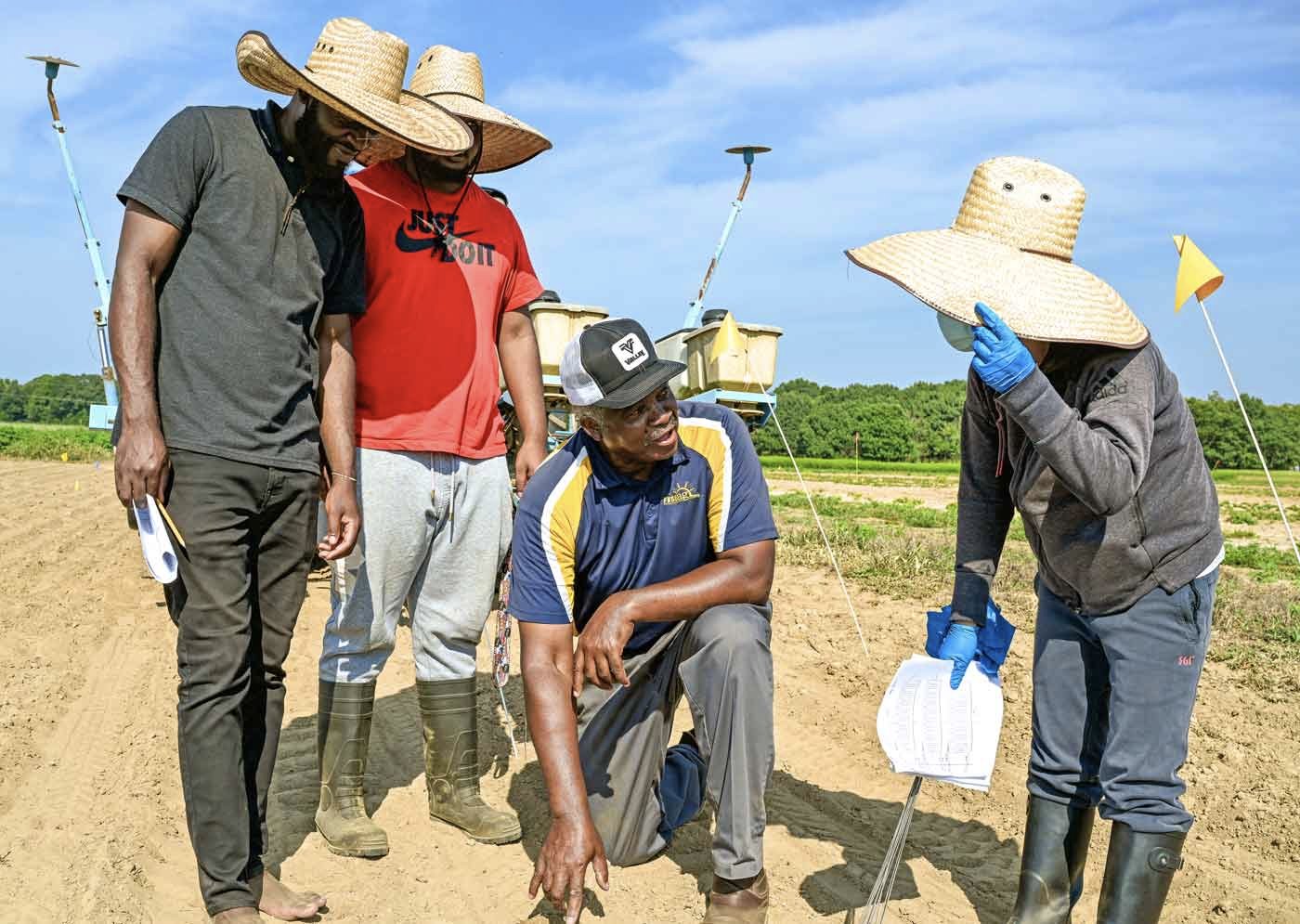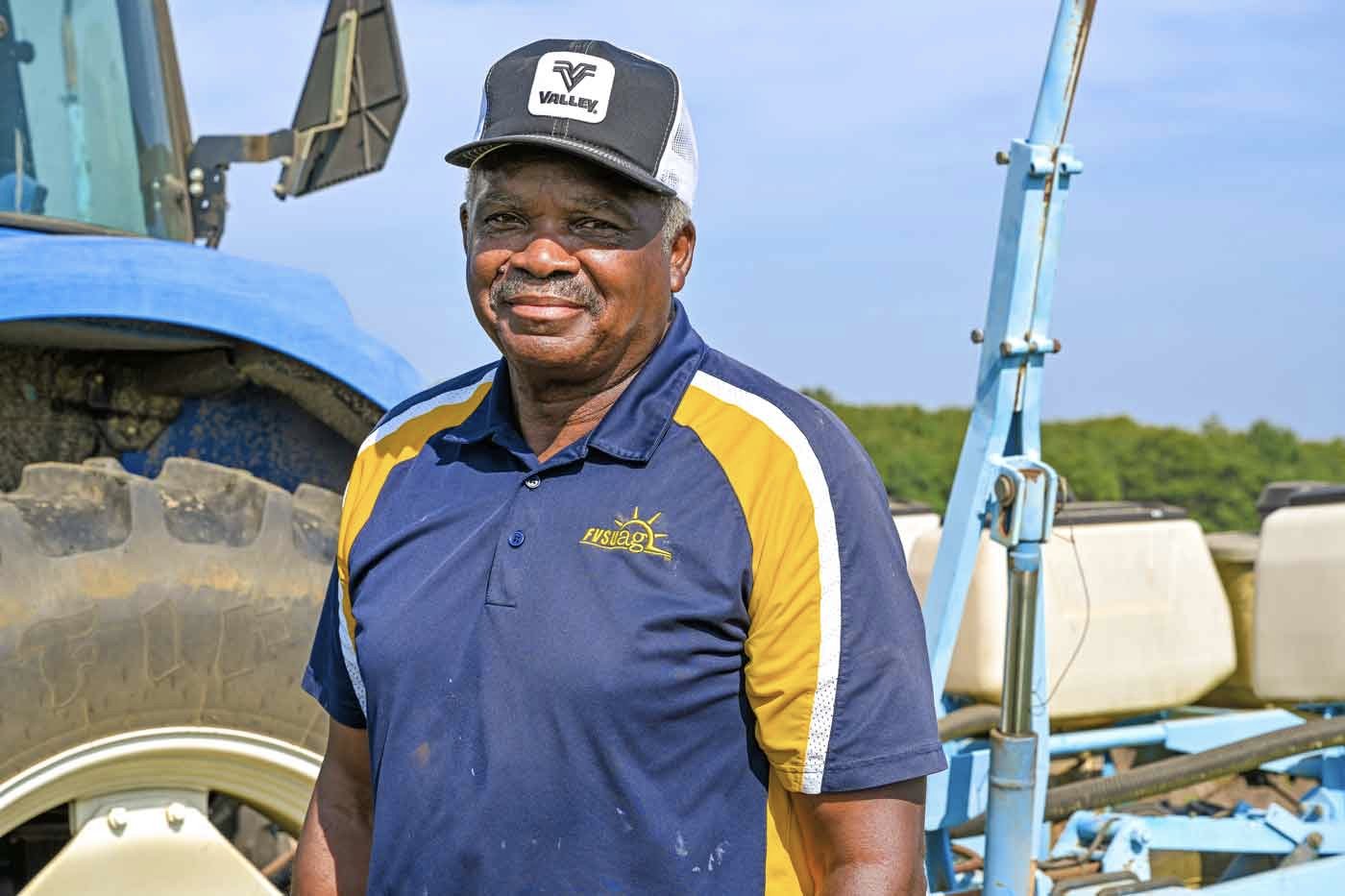For more than 43 years, Jared Fluellen has maintained the farm at Fort Valley State University.
The farm, officially known as Fort Valley State University’s Agricultural Research Station since 1980, has two sections totaling 1,176 acres. On the farm one can find corn, pecans, peaches, soybeans and crops used in biofuel production. Livestock raised at the facility include sheep, cattle, goats, and horses.
“As farm manager, my main responsibilities include purchasing equipment, livestock, and arranging the maintenance and repair of machinery and buildings on the farm. I also plan activities for staff and student workers, oversee budgeting, record keeping and sales,” Fluellen said.
Additionally, the FVSU farm manager said he coordinates actions on the farm such as planting, harvesting, irrigation, chemical application and assisting scientists with research plots and layouts.
Much of his work is influenced by his childhood. Fluellen grew up on a 150-acre farm in Perry, Georgia, where the family grew various crops including cotton, peanuts, wheat, soybeans and small vegetables. They also had a farrowing and feeder pig operation.
“I enjoyed working on the farm with my father. During my younger years, I was infatuated with driving our tractor and watching the crops grow,” Fluellen said.
As he grew older, Fluellen realized that there was more to farming than watching crops grow and driving farm equipment. It was then he decided to attend college and major in agriculture. As an undergraduate student at FVSC, Fluellen participated in extra-curricular activities such as the Animal Science Club and the Agri-Demic Forum.
After graduation, Fluellen worked as a feed and animal health products manager in Athens, Georgia. While working in Athens, Fluellen knew he wanted to be a farm manager somewhere, but he did not foresee it happening at FVSU.
In 1979, the position of farm manager opened at FVSU, and Fluellen immediately applied for the opportunity. “I was elated to be selected to fill the position, especially since I was already familiar with the layout of the farm area due to my undergraduate days at FVSU,” he said.

Fluellen, given a free hand in developing the layout of the farm, immediately started building on his plans. Thanks to his vision, the farm is what it is today. “I worked closely with research directors and Extension administrators to develop the farm layout so it could assist the research, Extension and teaching programs,” he said.
Furthermore, the longtime FVSU employee says it is a pleasure to pass down information and knowledge to those with a genuine interest in farming. “Hopefully, they will learn and grow from my advice and enhance their work experience. I want people to avoid the pitfalls that I may have experienced in farming. It’s always advantageous to provide knowledge to farmers who will come behind you.”
Moreover, Fluellen enjoys the fact that his job gives him the chance to work with students and scientists, in addition to adapting to the latest technology used in agriculture. He also delights in the teamwork needed to run the farm. He said it provides him with fuel to develop innovative ideas.
“The scientists and students push me to learn more so that I can better serve them in various capacities. The job is challenging, and I never know what it entails from day to day. I also enjoy using the latest in advanced machinery and how it improves job productivity,” he said. Some of this equipment includes livestock barns using Wi-Fi and webcams, automatic feeders for animals and climate control systems.
As a veteran farmer, Fluellen said it is an exciting but challenging endeavor that is expensive, requires a thorough work ethic and is time consuming, but enjoyable.
“I would suggest that an individual interested in farming should work on a farm for one or two years. I would tell them to keep their operation simple, be willing to adapt to new procedures, and not try to do everything alone. Accept things that you cannot control and be appreciative of the feeling of grace and reward when successfully meeting your goals for the year.”
In addition, he said farmers with access to educational opportunities can achieve success. “Farming is now more specialized than it was when I started with my father. It has become a high-tech job that requires some sort of education. Seventy percent of farmers have a higher education degree, a vocational certificate or diploma in the trade,” he said.
Fluellen is married to his wife of 39 years, Vivian (an FVSU alumna) and they are the parents of six children.

